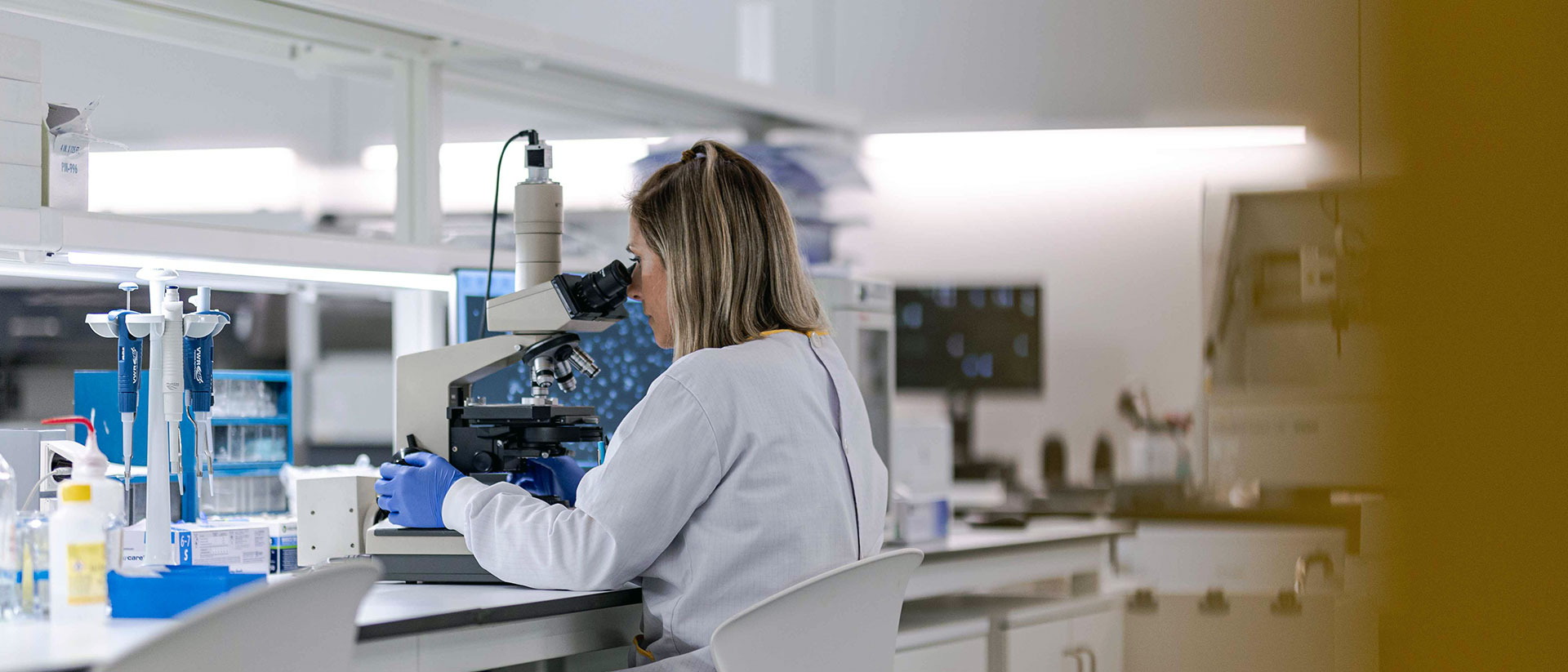Joaquim Chaves Saúde has always been synonymous with concern for the quality of customer service.
In the mid-1990s, the foundations were laid for the quality management system of the Dr. Joaquim Chaves Laboratory. The process culminated in 2001 with the laboratory being accredited in all its main areas.
The following years saw the consolidation of technical performance criteria and the extension of the scope of accreditation. By 2006, the Dr. Joaquim Chaves Laboratory had already accredited 700 techniques, covering more than 90% of the laboratory's work. Alongside this dynamic, the commitment to Internal Control and External Quality Assessment programmes was strengthened, underlining the high quality of the analytical results.
In 2007, the realisation of the importance of the interface with the client led to the strategic decision to opt for a certification framework based on ISO 9001. A strong commitment was made to monitoring critical functions with quality indicators. At the same time, compliance with ISO 17025 was maintained, an important benchmark in the field of laboratories.
Currently, the ISO 9001 standard is consolidated in most of Joaquim Chaves Saúde's units, with annual external audits of all certified units: Clinical Analyses, Medical Genetics and Pathological Anatomy Laboratories, Medical and Radioncology Clinics.
The Quality Policy, implemented from the outset, advocates such important guidelines as focusing on the service provided to the client, monitoring critical functions, investing in team training and qualification, developing partnership relationships, preventive organisation and optimising resources along a path of unavoidable Good Practice and Legal Compliance.
Quality Policy
The principles that form Joaquim Chaves Saúde's quality policy:
- Focus- All employees’ efforts must be focused on the service provided to the client, always endeavouring to meet or exceed their expectations.
- Monitoring - Critical functions, as well as customer satisfaction, must be objectively monitored. In particular, laboratories must have internal control and external quality assessment programmes in place to measure their technical performance in good time.
- Training - All employees must be effectively trained and qualified, and be responsible for their performance and the continuous improvement of the quality management system.
- Partnership - Partnership relationships with institutional clients, suppliers and other interested parties should be encouraged, given their importance in the success of customer service.
- Prevention - The activity should be planned taking into account its risks and the fulfilment of legal requirements, good practices and other applicable requirements, taking care of its implications for the environment and society in general.
- Optimisation - Management will always be geared towards reconciling good practice with the optimisation of resources and profitability and the consequent satisfaction of shareholders.
